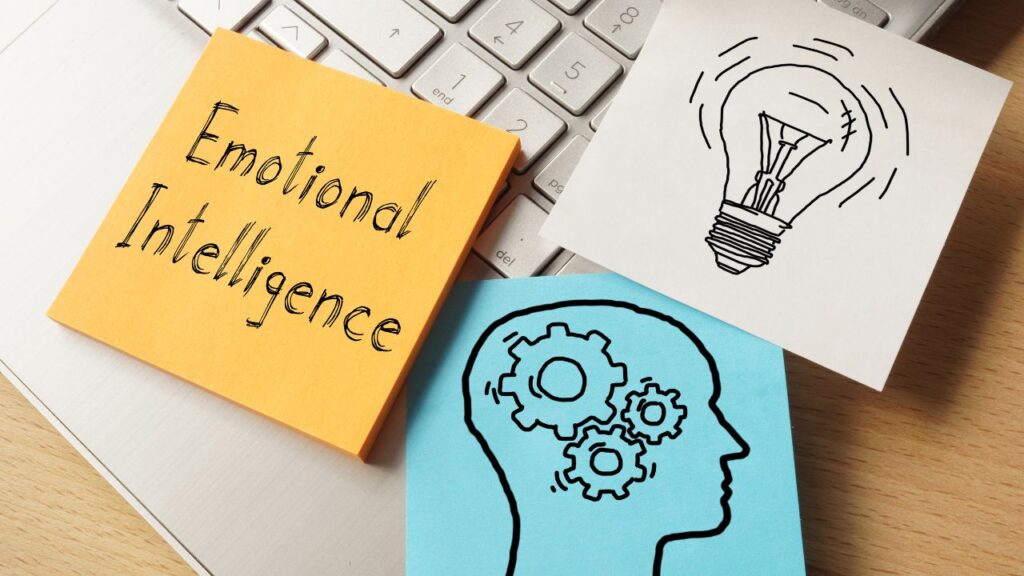In today’s interconnected world, success is not solely defined by intellectual prowess or technical skills. The ability to navigate social complexities, manage personal emotions, and maintain healthy interpersonal relationships plays a crucial role in achieving personal and professional success. This ability is encapsulated in the concept of Emotional Intelligence (EI). As the understanding of EI has grown, so too has the recognition of its profound impact on various aspects of life, from leadership to mental health.
In this article, we will explore the concept of Emotional Intelligence, its components, and the benefits it offers to those who cultivate it. By understanding EI and learning how to develop it, you can enhance your relationships, decision-making abilities, and overall well-being.

What is Emotional Intelligence?
Emotional Intelligence, often abbreviated as EI or EQ (Emotional Quotient), refers to the ability to recognize, understand, and manage one’s own emotions, as well as the emotions of others. The concept was popularized by psychologist Daniel Goleman in the mid-1990s, who identified EI as a key factor in personal and professional success.
Unlike traditional measures of intelligence, such as IQ, which focus on cognitive abilities like logic and reasoning, EI emphasizes the importance of emotions in our daily interactions and decision-making processes. It involves a set of skills that enable individuals to navigate emotional landscapes effectively, fostering better communication, empathy, and resilience.
The Five Components of Emotional Intelligence
Goleman identified five core components of Emotional Intelligence, each of which plays a vital role in how we interact with others and manage our own emotions:
- Self-Awareness Self-awareness is the foundation of EI. It involves recognizing and understanding your own emotions, strengths, weaknesses, values, and drivers. Self-aware individuals are in tune with their emotional states and how these emotions impact their thoughts and behaviors. They are also able to accurately assess their abilities and are open to feedback.
- Self-Regulation Self-regulation is the ability to manage your emotions and impulses in a healthy and productive way. It involves staying in control of your emotions, even in stressful situations, and avoiding impulsive actions that might lead to negative consequences. Self-regulated individuals are adaptable, able to manage conflict, and maintain a calm demeanor in challenging circumstances.
- Motivation Motivation in the context of EI refers to the intrinsic drive to achieve goals for personal fulfillment rather than external rewards. Emotionally intelligent individuals are motivated by a passion for their work, a desire to achieve, and a commitment to their goals. They are resilient in the face of setbacks and have a strong sense of purpose.
- Empathy Empathy is the ability to understand and share the feelings of others. It involves recognizing emotions in others, understanding their perspectives, and responding to them with compassion. Empathetic individuals are skilled at building and maintaining strong relationships, as they can connect with others on a deep emotional level.
- Social Skills Social skills encompass the ability to manage relationships effectively, communicate clearly, and work well with others. This component of EI involves being able to influence others, resolve conflicts, and build networks. Strong social skills are essential for leadership, teamwork, and successful interpersonal interactions.

The Benefits of Emotional Intelligence
Emotional Intelligence offers numerous benefits across various aspects of life, from personal well-being to professional success. Here are some of the key advantages of developing and enhancing your EI:
1. Improved Relationships
One of the most significant benefits of Emotional Intelligence is the ability to build and maintain healthy relationships. By understanding and managing your own emotions, you are better equipped to navigate interpersonal dynamics and respond to the emotions of others in a constructive manner. This leads to stronger connections, better communication, and more meaningful interactions with family, friends, and colleagues.
Empathy, a core component of EI, plays a crucial role in relationship building. When you can put yourself in someone else’s shoes and understand their feelings, you create an environment of trust and mutual respect. This fosters deeper bonds and enhances your ability to collaborate effectively with others.

2. Enhanced Communication
Effective communication is essential in both personal and professional settings. Emotional Intelligence enables you to express your thoughts and feelings clearly while also being attuned to the emotional cues of others. This results in more productive conversations, reduced misunderstandings, and a greater ability to influence and persuade others.
In professional environments, strong communication skills are often linked to leadership effectiveness. Leaders with high EI can articulate their vision, inspire their team, and navigate complex social dynamics with ease. They are also better at providing constructive feedback and resolving conflicts, which are essential for team cohesion and productivity.
3. Better Decision-Making
Emotions play a significant role in the decision-making process. Individuals with high Emotional Intelligence are better equipped to manage their emotions, preventing them from clouding their judgment or leading to impulsive decisions. By staying calm and focused, emotionally intelligent individuals can weigh the pros and cons of a situation more objectively and make decisions that align with their long-term goals.
Moreover, EI allows individuals to consider the emotional impact of their decisions on others. This is particularly important in leadership roles, where decisions can affect the morale and well-being of an entire team or organization. Emotionally intelligent leaders are more likely to make decisions that are not only logical but also compassionate and considerate of others’ needs.

4. Increased Resilience
Resilience is the ability to bounce back from adversity, and it is a crucial aspect of Emotional Intelligence. Individuals with high EI are better equipped to cope with stress, setbacks, and challenges because they have developed strong self-regulation skills and a positive mindset. They are less likely to be overwhelmed by negative emotions and more likely to approach problems with a solution-oriented attitude.
Resilience also involves maintaining motivation and a sense of purpose, even in difficult times. Emotionally intelligent individuals are driven by their internal goals and values, which helps them stay focused and committed even when faced with obstacles. This resilience not only enhances personal well-being but also contributes to long-term success in various aspects of life.

5. Greater Self-Awareness and Personal Growth
Self-awareness is the cornerstone of personal growth and development. By cultivating Emotional Intelligence, you gain a deeper understanding of your emotions, behaviors, and motivations. This self-awareness allows you to identify areas for improvement, set realistic goals, and take proactive steps towards personal growth.
Emotionally intelligent individuals are also more open to feedback and self-reflection. They are willing to acknowledge their mistakes and learn from them, which fosters continuous improvement and the development of new skills. This commitment to personal growth not only enhances individual well-being but also contributes to greater success in personal and professional endeavors.
6. Enhanced Leadership Abilities
Leadership is not just about managing tasks and directing others; it is also about understanding and influencing people. Emotional Intelligence is a critical factor in effective leadership, as it enables leaders to connect with their team members on an emotional level, understand their needs, and inspire them to achieve their best.
Leaders with high EI are skilled at managing their own emotions, which allows them to remain composed and decisive in challenging situations. They are also empathetic, which helps them understand the perspectives of their team members and create a supportive and inclusive work environment. Additionally, strong social skills enable emotionally intelligent leaders to communicate their vision effectively, build trust, and foster collaboration within their teams.

7. Improved Mental Health
Emotional Intelligence is closely linked to mental health and well-being. Individuals with high EI are better equipped to manage stress, anxiety, and other negative emotions, which can have a positive impact on their mental health. By developing self-awareness and self-regulation skills, emotionally intelligent individuals can recognize the signs of stress and take proactive steps to address it before it escalates.
Moreover, the ability to build strong, supportive relationships through empathy and social skills can provide a valuable source of emotional support during challenging times. This social support network can act as a buffer against stress and contribute to overall mental well-being.
8. Enhanced Workplace Performance
In the workplace, Emotional Intelligence is a key predictor of performance and success. Employees with high EI are more likely to excel in their roles because they can navigate the social complexities of the workplace, manage their emotions effectively, and build strong relationships with colleagues and clients.
Emotionally intelligent employees are also better at handling conflict, adapting to change, and staying motivated in the face of challenges. These qualities make them valuable assets to any organization and contribute to a positive and productive work environment.

How to Develop Emotional Intelligence
While some aspects of Emotional Intelligence may come naturally, it is also a skill that can be developed and enhanced over time. Here are some strategies for cultivating EI:
1. Practice Self-Reflection
Take time to reflect on your emotions, behaviors, and reactions in various situations. Consider how your emotions influence your decisions and interactions with others. Journaling or meditation can be helpful tools for increasing self-awareness and understanding your emotional patterns.
2. Seek Feedback
Ask for feedback from trusted friends, colleagues, or mentors about how you manage your emotions and interact with others. Use this feedback to identify areas for improvement and develop strategies for enhancing your EI.
3. Develop Empathy
Practice putting yourself in others’ shoes and considering their perspectives and emotions. Engage in active listening and show genuine interest in understanding the feelings and needs of others. This can help you build stronger relationships and improve your social skills.
4. Manage Stress
Develop healthy coping strategies for managing stress, such as deep breathing exercises, physical activity, or mindfulness meditation. By managing stress effectively, you can prevent negative emotions from clouding your judgment and maintain emotional balance.
5. Improve Communication Skills
Work on enhancing your communication skills by practicing clear and assertive communication. Pay attention to non-verbal cues, such as body language and tone of voice, and ensure that your message is conveyed in a respectful and empathetic manner.
6. Set Personal Goals
Set specific, measurable, achievable,
relevant, and time-bound (SMART) goals for developing your Emotional Intelligence. For example, you might set a goal to improve your conflict resolution skills or to increase your self-awareness through regular journaling.
7. Learn from Experience
Use your experiences as opportunities for growth. Reflect on how you handled emotional situations in the past and consider what you could do differently in the future. Learning from both successes and mistakes is key to developing EI.
Conclusion
Emotional Intelligence is a powerful tool that can enhance every aspect of your life, from personal relationships to professional success. By understanding and developing the core components of EI—self-awareness, self-regulation, motivation, empathy, and social skills—you can improve your ability to navigate the emotional complexities of life, make better decisions, and build stronger, more fulfilling relationships.
As you cultivate Emotional Intelligence, you will likely find that you are more resilient in the face of challenges, more effective in your communication, and more capable of achieving your personal and professional goals. Ultimately, EI is not just about understanding emotions; it is about harnessing their power to lead a more balanced, successful, and fulfilling life.



